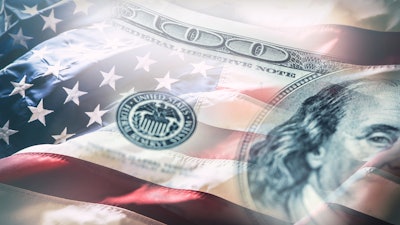
Capitalism is a free-market system that is supposed to promote competition. In classic capitalist theory, competition leads to innovation and more affordable consumer prices. Without competition, a monopoly, oligopoly, or cartel may develop.
A monopoly occurs when one firm supplies the total output in the market; the firm can then limit output and raise prices because it has no fear of competition. If several companies get together to control output and prices, it is known as an oligopoly or a cartel.
The political defense of capitalism is that economic power is diffused and cannot be aggregated in a way that would have undue influence over the democratic state. These core claims for capitalism are demolished if monopoly, rather than competition, is the rule.
In the current economy, capitalism, as led by U.S. multinational corporations, is not promoting the ubiquity of competitive markets. Rather, it has been moving toward consolidation and oligopolies for many years.
Modern-day oligopolies
- Meat Packers. In 1982, the five largest meatpackers controlled 16% of the meat industry. Today, four firms control 85% of the beef market. This oligopoly includes National Beef, Cargill, Tyson and JBS (which purchased Swift). The big four import much of their meat from Brazil, Mexico and Australia, which puts enormous pressure on domestic farmers and ranchers who have to pay the price demanded by the oligopoly.
- Oil and Gas. There are currently 50 oil and gas producers in the U.S., producing 2,736 million barrels of oil per year. Exxon merged with Mobil Oil (ExxonMobil), and Conoco merged with Phillips (ConocoPhillips). Along with Chevron and Occidental Petroleum, these three giants control 70% of all oil produced in the U.S.
- Technology. Google owns 92% of the internet search business, and Facebook controls 70% of social networks. Microsoft has 87% of the PC operating systems market.
- Pharmaceutical. The advantage of pharmaceutical companies is that they are issued patents for new drugs, which allows them to have monopoly pricing for 12 to 13 years. The largest firms then merge or acquire other firms with patents, giving them monopoly power in more drug markets. An example is AbbVie's rheumatoid arthritis drug Humira, with more than $12 billion in U.S. sales in 2022. Another example is Bristol Meyers and Revlimid (a multiple myeloma drug) that generates $8.7 billion in annual sales. Between buying up patents to create monopolies and offshoring drugs to China and India, Americans are faced with drug shortages of critical medicines and drug prices two to three times higher than in Europe.
- Home Appliances. Five major appliance manufacturers in the United States control the entire market: Whirlpool, Electrolux, GE, LG and Samsung. These major appliance manufacturers have increased their market concentrations by buying competitors. Whirlpool now owns the Jenn-Air, Maytag, Amana, Roper and KitchenAid brands. Electrolux owns Frigidaire, Tappan, Kelvinator and Gibson brands. General Electric owns the Hot Point, Cafe and Monogram brands. GE is now owned by the Chinese company Haier.
These are not the only examples of oligopolies. Consolidation has occurred in almost every manufacturing industry and hundreds of market niches, from mattresses and glass bottles to microprocessors and fluid milk.
How did this happen?
In the 1960s, Robert Bork was a conservative judge who truly believed socialism might take over the country through the use of antitrust laws. In 1978, his book, The Antitrust Paradox, featured the famous sentence, "The Congress enacted the Sherman Act as a consumer welfare prescription." One year later, the Supreme Court adopted that sentence, shifting the whole argument from unfair competition to protecting "consumer welfare."
At about the same time, economists at the Chicago School of Economics began to publish studies claiming that enforcing our anti-monopoly laws harmed that defenseless figure—the American Consumer—by promoting wasteful competition. The Chicago economists saw monopolies as a move towards maximizing efficiencies rather than maintaining fair and open markets for all competitors.
Why increasing industry consolidation matters
Oligopolies and monopolies are the antithesis of how capitalism is supposed to work. Capitalism is based on the ubiquity of competitive markets. Still, industry after industry is now dominated by oligopolies with few competitors, which leads to an increase in price relative to costs.
Small businesses have declined in both numbers and market share across many sectors of the economy. Between 1997 and 2012, small manufacturers fell by more than 70,000, and start-ups have fallen by nearly half since the 1970s. This trend is most obvious in the tech sector, where venture capitalists are hesitant to fund new start-ups to compete with big tech companies because it is so easy for them to drive them out of business.
Under oligopoly and monopoly conditions, investment and innovation slows down. Corporations can raise prices and profits without investing in new technologies and products.
Market concentration then causes wages to stagnate because it reduces competition for labor. Oligopoly power can reduce employee wages and benefits on the one hand and increase prices on the other. It is the perfect formula for shifting income from the workers to the oligopolies.
Finally, oligopolies have the power to reduce supplier prices. As consolidation continues to grow, there are more sellers (suppliers) and fewer buyers (oligopolies), so the buyers gain. For example, a pig farmer today can sell to only four major pork producers. A farmer's average price for a hog dropped 31% from 1989 to 2008.
Developments
- Amazon. The Federal Trade Commission (FTC) and 17 states have sued the e-commerce giant, accusing it of protecting a monopoly over swaths of online retail by squeezing merchants and favoring its own services.
- Meta. The FTC and more than 40 states have accused Facebook of buying up its rivals, particularly Instagram in 2012 and WhatsApp two years later. They have called for the deals to be unwound.
- Google. The Justice Department has accused Google of illegally protecting its monopoly over search and search advertising.
Consolidation has been bad for working people, taxpayers, the middle class and suppliers. People have deluded themselves by thinking that oligopolies are simply the natural outcome of free market capitalism, globalization, or other mysterious economic forces. It is time to accept the fact that this consolidation contributes to income redistribution, lower wages, inequality, lower standards of living and a slowdown in productivity. In short, it contributes to the poor performance of the American economy in so many dimensions.
It is in capitalism's DNA to create oligopolies and monopolies, and they can only be restricted by government regulation. The answer is to revive antitrust as it was used in the New Deal. President Joe Biden started down the antitrust road when he signed an executive order in July 2021 targeting what he labeled as anticompetitive practices in tech, health care, food and farming.
Biden said, "Let me be very clear: capitalism without competition isn't capitalism; it's exploitation."
Michael Collins is the author of "Dismantling the American Dream: How Multinational Corporations Undermine American Prosperity." He can be reached at mpcmgt.net.






















